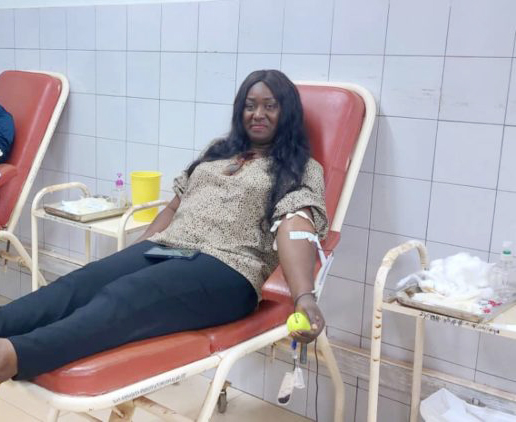Blood in the stools: what causes it?
- Posted on 18/07/2023 11:32
- Film
- By abelozih@sante-education.tg

Extract from the article: One morning, you notice blood in your stools. Even though it is often trivialised, rectal bleeding always requires medical attention to rule out any risk of serious illness. What causes this symptom? What should you do if you suffer from it?
One
morning, you notice blood in your stools. Even though it is often trivialised,
rectal bleeding always requires medical attention to rule out any risk of
serious illness. What causes this symptom?
What should you do if you suffer from it?
The
condition of stools is an excellent indicator of general health. So it's
important to know what colour your stools should be, and to observe them
regularly. The colour of stools can vary from dark brown to light brown,
depending on the state of transit, eating habits and the use of certain
medications. However, if you notice other colours at the bottom of the bowl,
such as red or black, it is likely to be caused by bleeding.
What
illness is involved?
Bedwetting
can have a wide variety of causes. According to Dr Jean Claude Bakpatina,
General Practitioner, « you can have haemorrhoids; haemorrhoidal
disease is a benign condition that affects the network of blood vessels (called
haemorrhoids) in the anus and rectum. They are the cause of the majority of
cases of rectal discharge. Intestinal transit disorders, such as chronic
constipation and acute diarrhoea, can also cause anal fissures and small rectal
bleeds ».
Blood
in the stools can occur as a result of a complication linked to medical care or
treatment. « Medical treatment and care can also lead to rectal
discharge, such as taking certain medications, using irritating ointments or
suppositories, repeated rectal temperature readings, pelvic radiotherapy,
digestive surgery or colonoscopy », explains Dr Jean Claude Bakpatina.
There
may also be an inflammatory disease or tumour of the colon, anus or rectum.The
GP explains that « certain chronic digestive diseases, such as
haemorrhagic rectocolitis or Crohn's disease, are accompanied by frequent,
sometimes bloody diarrhoea. Not all tumours are cancers, but they can all cause
bleeding ». That's why it's so important to see a doctor as soon as
you notice blood in your stools.
Elom
AKAKPO




